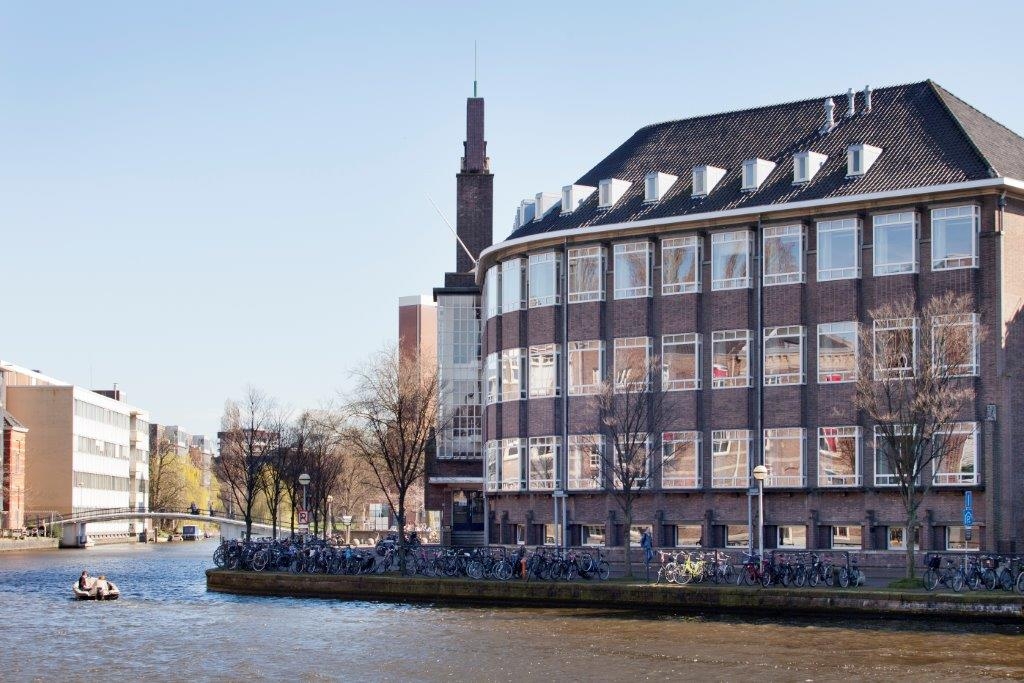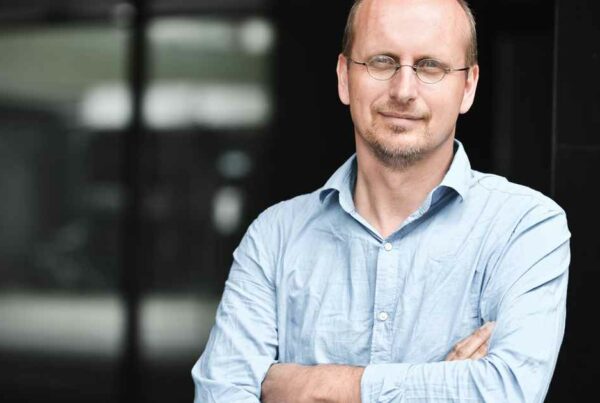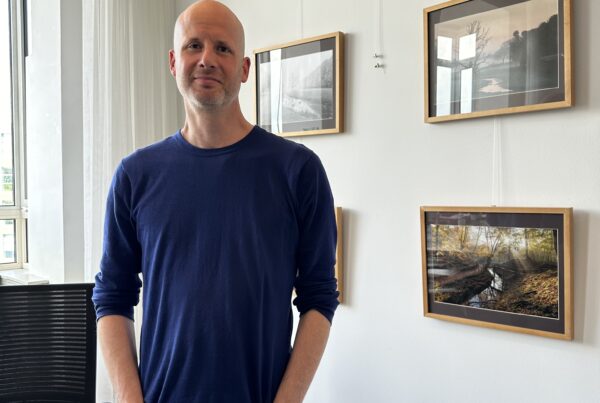
My experience reading the often-touching acknowledgment section in science books made me suspect that friendships between researchers are a great source of inspiration and contagious enthusiasm for the parties involved. It made me think that science is really something that happens between people, and friendships act as a catalyst for new ideas to emerge and new questions to be posted. I came up with the term “academic friendships”, but they don’t have to be a special kind of friendship. The term is more to emphasize that friendships in academia are important and they add a little magic to the work. Curious to find out more about this topic, I asked members of the academic staff to share their thoughts or stories about the meaning of “academic friendships”. Their answers can be read below. Some of them preferred to remain anonymous.
Johnny van Doorn, Psychological Methods: ‘My most significant finding during my PhD is probably the awesomeness of my friend and officemate Quentin. It took a while for us to get to know each other, but once we started sharing an office and lab group the bonding quickly accelerated through joint trips to conferences and by teaching workshops together. Quentin has been a great help in my research, as a co-author and by always taking the time to explain some complicated concepts to me (he seems to be some living combination of WolframAlpha, Stackoverflow, and Wikipedia). In exchange I occasionally help him when the printer does not work. However, the greatest aspects of our office friendship lie outside of the office – mostly in the form of CREA-drinks and lunch-break soccer sessions when the weather permits. This summer we both successfully defended our PhD’s and acted as each other’s paranymph (a sort of side-kick during a defense).’
‘Sometimes you start a research cooperation and it immediately feels right. In my career, I have met a number of people with whom it went like that. When I think back to our discussions, I remember how one of us would fetch a piece of paper from the waste paper bin or grab a white board pen to sketch a model together, improving each other by sometimes crossing everything and starting again. On my phone, I don’t have sociable selfies with these colleagues, but pictures of these sketches. What drives these academic friendships is the selfless interest in each other’s work, meaning you are always willing to provide each other with feedback, without expecting anything in return. And I guess because of those qualities, selflessness, interest and trust, some of these academic friendships have for me turned into (almost) ordinary friendships.’
E.J. Wagenmakers, Psychological Methods: ‘In my experience, academic friendships do not differ fundamentally from other sorts of friendship. This means, for instance, that it becomes increasingly difficult to make friends as you grow older (my four-year old son makes a new “best friend” in a few minutes). It also means that true friendships can survive a hiatus of years without much contact. Another similarity with other friendships is that academic friendships usually occur between people in the same career-stage. For instance, I am not friends with my PhD students. I do care about them deeply, but I am still their advisor and I feel that my role is more like that of a surrogate father than a friend. Academic friendships do allow you to combine work and pleasure; for instance, when it was still accepted practice to do so, I regularly visited Southern California and Australia to work with my friends.’
Frenk Van Harreveld, Social Psychology: ‘The academic friendships I have had over the years are defined by them originating in a shared research interest and then transcending research and extending into discussions about topics such as music, politics, film, and literature. I love talking about research, but not as much as I love talking about other things. A lot of the interesting research done at our department is done by interesting people with a broad interest in the world around them. As a result, I think we are fortunate to work where we do and I have had the pleasure to work with various people I consider friends. However, shared research interests were usually just the entry into a broader friendship.’
‘When I think about academic friendships, what comes to mind is the academic friendship I share with my former doctoral advisor. Over the years, we moved from being student and promotor to being colleagues and friends. What makes this friendship special for me is the balance of personal and professional. This means that we do not only talk about our personal and professional lives as separate areas of our lives, but also about our personal lives as professionals as well as the personal dimension of our professional lives.’
Lisa Wijsen, Psychological Methods: ‘During my Research Master, I had the opportunity to go to New Zealand and visit theoretical methodologist Brian Haig. I spent 6 months there doing research and writing my thesis on the philosophy of the factor model with Brian as my supervisor. I was so excited to travel to the other end of the world, and since Brian does most of his research by himself, I think he really enjoyed having a visitor. He turned out to be a wonderful advisor: he spent a lot of time on my thesis and during our weekly lunches, we had proper talks about the project. However, we also became friends on a more personal level: He picked me up from the airport, showed me around Christchurch and the university, introduced me to his wife and invited me over for dinner several times. Years later, we got to meet again in Chicago and Amsterdam. I remember receiving stressed-out text messages from fellow Research Master students here in Amsterdam, who were freaking out about their thesis and whether they would make the deadline, whereas my thesis was a very relaxed and fun experience. I think I was very lucky in having a thesis supervisor who enjoyed spending so much time on my project, who was so kind to me and who made the temporary transition to another country so much more fun and easier. Though I was not a researcher yet, I consider it to be my first academic friendship.’
Max van der Linden, Psychological Methods: ‘The supervisor of my medical history dissertation – a professor of the history of psychiatry – is also fascinated by the history of space exploration. During our meetings, more and more time is devoted to this topic. And now I’m hooked too! The way the Russians and the Americans opened up space in the 1950s and 1960s is a unique and exciting episode in human history. It is a story of cooperation of many scientists on an unprecedented scale, of the development and application of new technologies we still use today, of geopolitical competition (Cold War) and of just almost unimaginable individual courage of the astronauts. Together we follow with mixed feelings the current space ambitions of billionaires from Silicon Valley and countries like the US and China. Although the problems of our own planet should be prioritized and require financial injections of billions, it is fascinating stuff again!’
Tessa Blanken, Psychological Methods: ‘I like working in science, but what I love about working in science is the opportunity to work together with great colleagues, who sometimes turn into the best friendships. One such academic friendship started out during my PhD. We did a project together and found that our ideas complemented each other so often. This going back-and-forth with ideas —next to nice long coffee breaks, lunches, and lots of laughter— resulted in such an energetic, curious, and smooth project, that it made me convinced that to me, this is what science is about. Next to collaborating on projects, we also shared our thoughts about working in science in general, the things we liked and the things we found difficult, and how to go about this. I deeply cherish this friendship to this day, and hope everyone finds great academic friends like these.’
Johnny van Doorn, Psychological Methods: ‘My most significant finding during my PhD is probably the awesomeness of my friend and officemate Quentin. It took a while for us to get to know each other, but once we started sharing an office and lab group the bonding quickly accelerated through joint trips to conferences and by teaching workshops together. Quentin has been a great help in my research, as a co-author and by always taking the time to explain some complicated concepts to me (he seems to be some living combination of WolframAlpha, Stackoverflow, and Wikipedia). In exchange I occasionally help him when the printer does not work. However, the greatest aspects of our office friendship lie outside of the office – mostly in the form of CREA-drinks and lunch-break soccer sessions when the weather permits. This summer we both successfully defended our PhD’s and acted as each other’s paranymph (a sort of side-kick during a defense).’
‘Sometimes you start a research cooperation and it immediately feels right. In my career, I have met a number of people with whom it went like that. When I think back to our discussions, I remember how one of us would fetch a piece of paper from the waste paper bin or grab a white board pen to sketch a model together, improving each other by sometimes crossing everything and starting again. On my phone, I don’t have sociable selfies with these colleagues, but pictures of these sketches. What drives these academic friendships is the selfless interest in each other’s work, meaning you are always willing to provide each other with feedback, without expecting anything in return. And I guess because of those qualities, selflessness, interest and trust, some of these academic friendships have for me turned into (almost) ordinary friendships.’
E.J. Wagenmakers, Psychological Methods: ‘In my experience, academic friendships do not differ fundamentally from other sorts of friendship. This means, for instance, that it becomes increasingly difficult to make friends as you grow older (my four-year old son makes a new “best friend” in a few minutes). It also means that true friendships can survive a hiatus of years without much contact. Another similarity with other friendships is that academic friendships usually occur between people in the same career-stage. For instance, I am not friends with my PhD students. I do care about them deeply, but I am still their advisor and I feel that my role is more like that of a surrogate father than a friend. Academic friendships do allow you to combine work and pleasure; for instance, when it was still accepted practice to do so, I regularly visited Southern California and Australia to work with my friends.’
Frenk Van Harreveld, Social Psychology: ‘The academic friendships I have had over the years are defined by them originating in a shared research interest and then transcending research and extending into discussions about topics such as music, politics, film, and literature. I love talking about research, but not as much as I love talking about other things. A lot of the interesting research done at our department is done by interesting people with a broad interest in the world around them. As a result, I think we are fortunate to work where we do and I have had the pleasure to work with various people I consider friends. However, shared research interests were usually just the entry into a broader friendship.’
‘When I think about academic friendships, what comes to mind is the academic friendship I share with my former doctoral advisor. Over the years, we moved from being student and promotor to being colleagues and friends. What makes this friendship special for me is the balance of personal and professional. This means that we do not only talk about our personal and professional lives as separate areas of our lives, but also about our personal lives as professionals as well as the personal dimension of our professional lives.’
Lisa Wijsen, Psychological Methods: ‘During my Research Master, I had the opportunity to go to New Zealand and visit theoretical methodologist Brian Haig. I spent 6 months there doing research and writing my thesis on the philosophy of the factor model with Brian as my supervisor. I was so excited to travel to the other end of the world, and since Brian does most of his research by himself, I think he really enjoyed having a visitor. He turned out to be a wonderful advisor: he spent a lot of time on my thesis and during our weekly lunches, we had proper talks about the project. However, we also became friends on a more personal level: He picked me up from the airport, showed me around Christchurch and the university, introduced me to his wife and invited me over for dinner several times. Years later, we got to meet again in Chicago and Amsterdam. I remember receiving stressed-out text messages from fellow Research Master students here in Amsterdam, who were freaking out about their thesis and whether they would make the deadline, whereas my thesis was a very relaxed and fun experience. I think I was very lucky in having a thesis supervisor who enjoyed spending so much time on my project, who was so kind to me and who made the temporary transition to another country so much more fun and easier. Though I was not a researcher yet, I consider it to be my first academic friendship.’
Max van der Linden, Psychological Methods: ‘The supervisor of my medical history dissertation – a professor of the history of psychiatry – is also fascinated by the history of space exploration. During our meetings, more and more time is devoted to this topic. And now I’m hooked too! The way the Russians and the Americans opened up space in the 1950s and 1960s is a unique and exciting episode in human history. It is a story of cooperation of many scientists on an unprecedented scale, of the development and application of new technologies we still use today, of geopolitical competition (Cold War) and of just almost unimaginable individual courage of the astronauts. Together we follow with mixed feelings the current space ambitions of billionaires from Silicon Valley and countries like the US and China. Although the problems of our own planet should be prioritized and require financial injections of billions, it is fascinating stuff again!’
Tessa Blanken, Psychological Methods: ‘I like working in science, but what I love about working in science is the opportunity to work together with great colleagues, who sometimes turn into the best friendships. One such academic friendship started out during my PhD. We did a project together and found that our ideas complemented each other so often. This going back-and-forth with ideas —next to nice long coffee breaks, lunches, and lots of laughter— resulted in such an energetic, curious, and smooth project, that it made me convinced that to me, this is what science is about. Next to collaborating on projects, we also shared our thoughts about working in science in general, the things we liked and the things we found difficult, and how to go about this. I deeply cherish this friendship to this day, and hope everyone finds great academic friends like these.’



